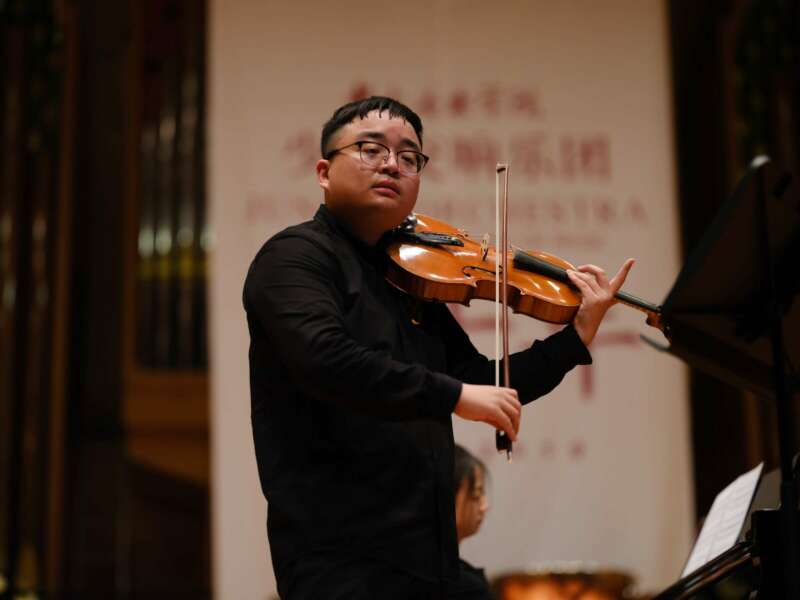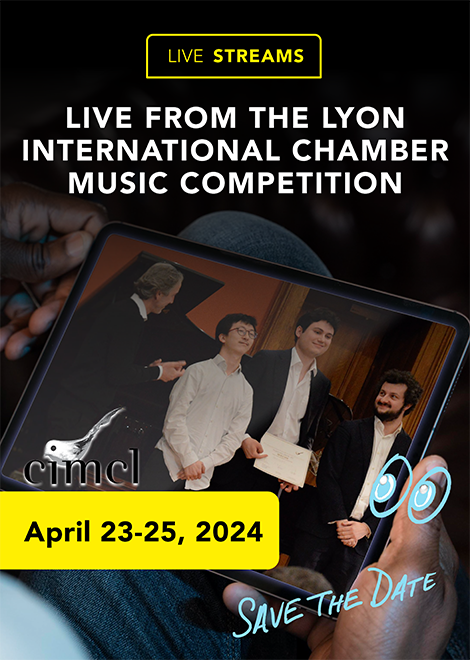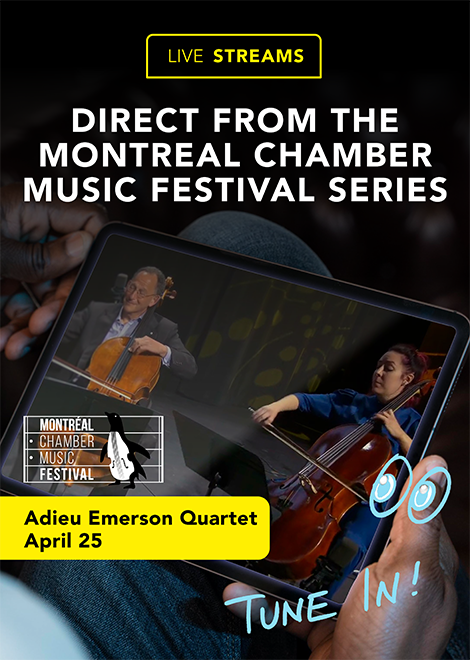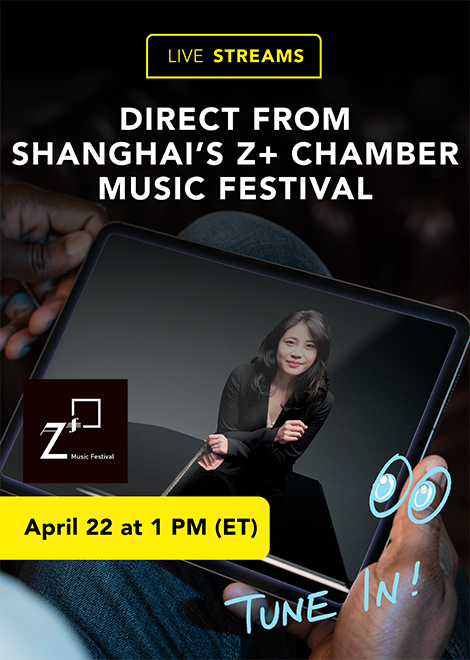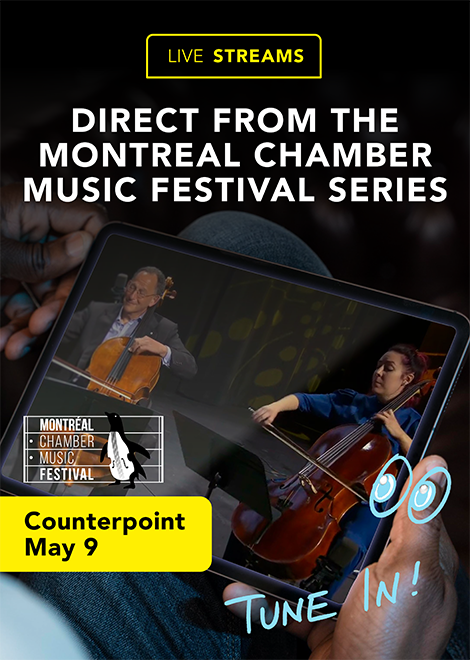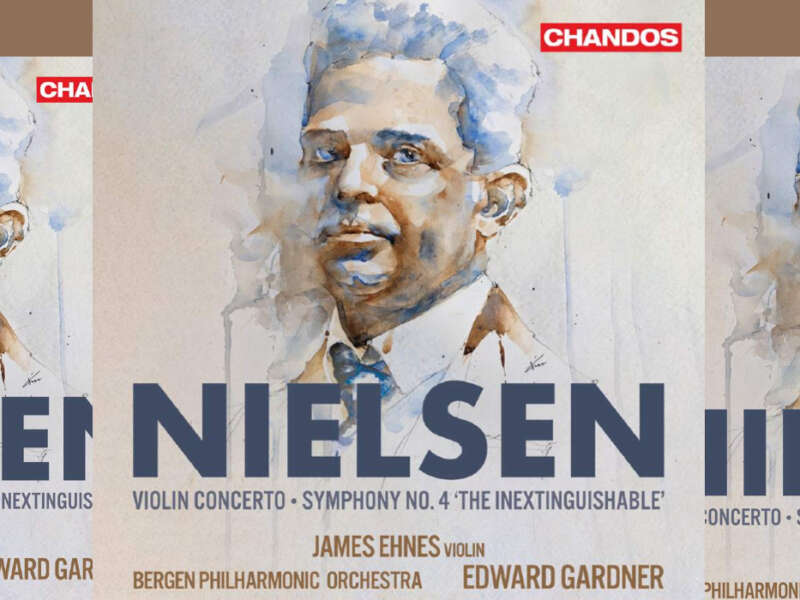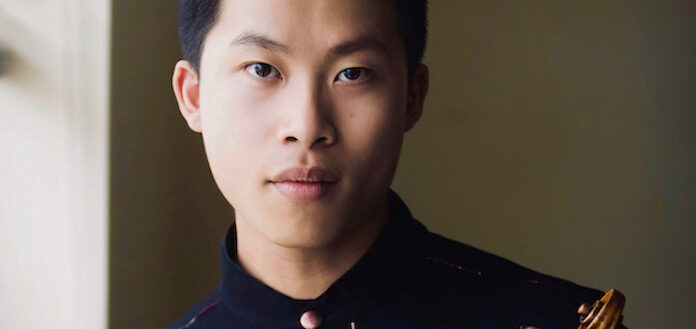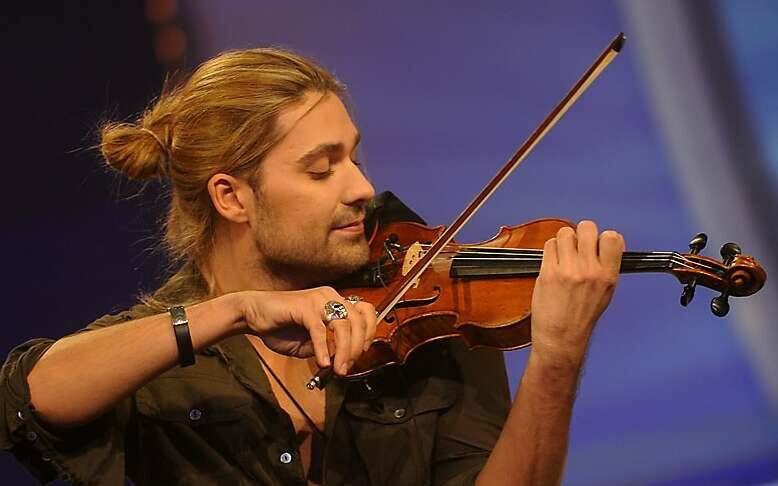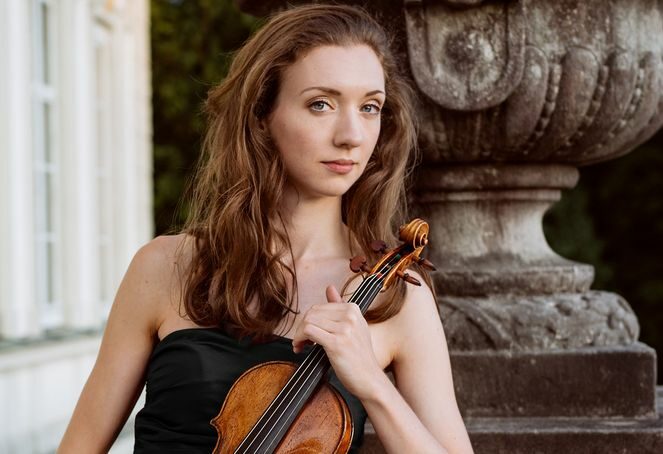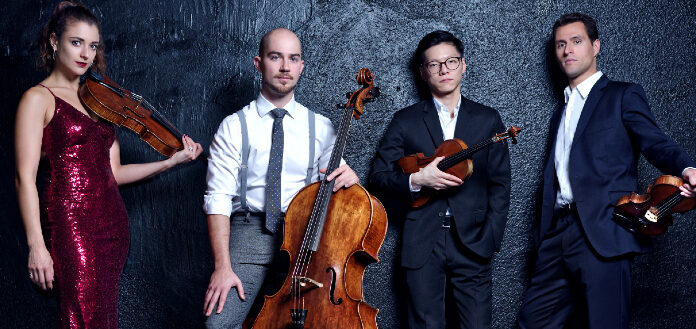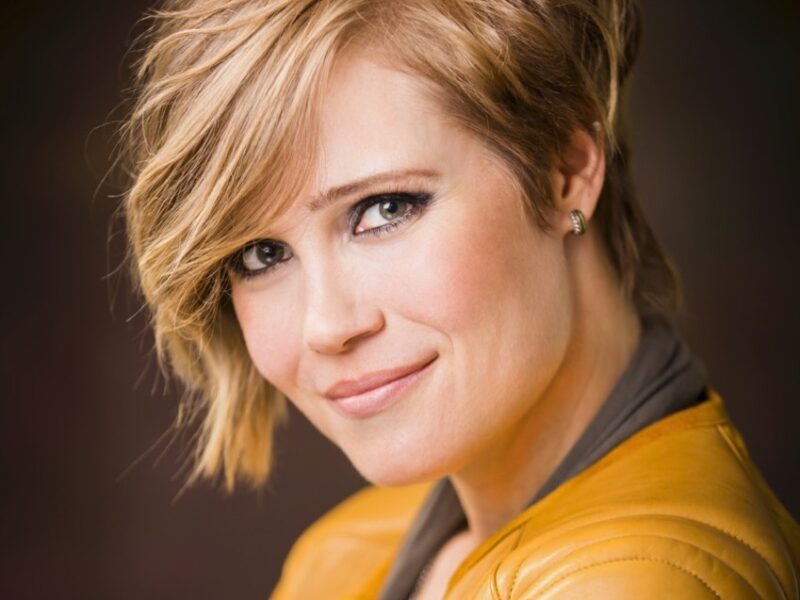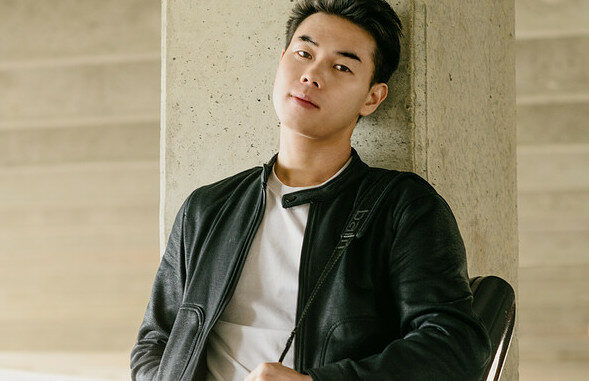VC INTERVIEW | Artistic Director of the Montreal Chamber Music Festival, Denis Brott
The Violin Channel will be streaming the festival's new five-part series called 'Home From Away' this coming May 10 through June 7, including performances by Martin Beaver, James Ehnes & the St. Lawrence String Quartet
The Violin Channel recently sat down with cellist Denis Brott to discuss how he and the Montreal Chamber Music Festival has adapted to COVID-19.
Tell us about the Montreal Chamber Music Festival and its history. When it was founded?
I founded the Montreal Chamber Music festival in 1995. I had been in the Orford Quartet during the 1980s and was offered a position as Professor at the Conservatoire de Musique de Montreal in 1989. I moved here in 1990 and realized very quickly that I missed my colleagues and friends from the Orford Quartet and playing mixed chamber music. Montreal didn't have a chamber music festival at the time, and by chance, I had a meeting with the mayor of the city at a social event. I presented to him the idea of creating a chamber music festival. The city of Montreal is on a mountain called Mont Royal, on top of which is a building that is somewhat like a chateau. With not much in it, it’s a beautiful place for concerts with a panoramic view of the city of Montreal below, the St. Lawrence River, and even the New York and Vermont mountains in the distance. We started there, with the support of the city, and have grown and continued since then. We were all set to celebrate our 25th anniversary when the pandemic struck.
The festival has had an amazing track record. It's built around an exchange of information between a seasoned professional and an aspiring musician. This was inspired by my early years at the Marlboro Festival in Vermont, where I got to play side by side with great, great artists, such as Rudolf Serkin, Sasha Schneider, Felix Galimir, Casals, Geoffrey Solo, Yo-Yo Ma, Paul Tobias, etc. When I started this festival, I wanted it to be something along those lines of a mentor-apprentice activity, where we give the most talented, aspiring young people a chance to play with master artists.
I started something called the Musical Instrument Bank of the Canada Council in the mid to late 80s, which is a collection of about 28 instruments now. I built upon that by giving performance opportunities to these winners of instruments. People who played at our festival in their teenage years have gone on to become stars in their field. People like James Ehnes, Jan Lisiecki, Conrad Tao, and Timothy Chooi. Their being at the festival in their early years was formative for all.
The festival continues now, having missed two seasons, because June 2020 and 2021 were and have been canceled. We’re hoping to do a fall season starting in October of five concerts. Instead of the usual two weeks, we're spreading the festival between October 18 and December 7. The venues used are part of McGill University and the Museum of Fine Arts of Montreal. The latter is called the Bourgie Hall, which is a beautiful 420 seat hall ideal for chamber music, which is a converted church with beautiful stained-glass windows.
How did the festival adapt to the COVID-19 situation?
It's been turmoil for all of us as you can imagine. Every musicians' voice was silenced suddenly, my own included. I had concerts in Europe in late February and early March, performing with the Barbican quartet both in London and Holland. I also teach at the Netherlands String Quartet Academy in Amsterdam. Once I returned from traveling in March, I, unfortunately, got a really bad case of COVID-19. I was in a coma for 32 days on a ventilator. My various organs shut down and I almost didn't make it. I ended up spending 45 days in total in the hospital. I returned home somewhat of an invalid with a walker and was unable to do anything by myself. Fortunately, my son came to help take care of me and I got my strength back. When I recovered, I realized the chamber festival had to become digital to remain not only active but also continue our exchange with artists. I created various digital series, one called “A Day in the Life,’ which is a 10 segment video series highlighting how young people, instrument bank winners specifically, are dealing with this COVID crisis. These 10 videos are now on The Violin Channel and give tremendous insight into how each one of these brilliant talents found ways to cope and survive.
Another digital initiative we created was a five-part series called ‘Home From Away,’ which allows great Canadian artists to play and speak to audiences directly from their homes. Artists such as John Kimura Parker, James Ehnes, Martin Beaver, Joseph Kaiser, and the St. Lawrence String Quartet. This series will also be on The Violin Channel starting in May.
We're recording another digital series in June, in the Bourgie Hall, which will feature promising young artists from here in Quebec. Roger Dubois, who has collected Strads, Guarneris, Gasparo da Salò—a truly great collection of violins, violas and cellos—will give these artists a chance to play on his instruments.
Overall, the plan for the festival was to pivot into the digital world. We've created our own YouTube channel and have secured 24 years of archival recordings. We've created five channels, baroque, classical, romantic, modern, and jazz, which will also be launched on Apple Music and on Spotify. Every month, new material will be released.
We are sort of changed forever, in that all our concerts in the fall will be videotaped, and will be released later as videos on our YouTube channel. The issue about the internet for classical music is that there is a plethora of stuff out there. It's impossible to monetize in a meaningful way. You need to find other ways of monetization, through sponsorships, for example, to cover the costs of filming, paying the artists, promotion, and publicity. It’s challenging, but I think the digital side of things will add another dimension of personalizing the concerts. Things like interviews, backstage anecdotes, and program notes by the artists themselves, can offer a greater dimension and depth to the listening experience.
As a COVID-19 survivor, what advice do you have for other people? What should they be doing right now?
I think the most important thing is to be resilient. The advice I have, if you love what to do, if you live to see the next day, that part of you gives you the courage to fight COVID, though a lot of it is the luck of the draw. It has to do with your desire, your resilience, your creativity, your will. It's just a will. I don't know where that comes from but it's somewhere very deep inside, it's a will to make music again, it's a will to see life through that ever-bubbling wheel of creativity which thank God has not been robbed from me.
What do you see the future of the music industry as being? What are the positives that are going to come out of this?
Well first of all I think it'll never be the same, principally, because of the internet. We've had to find ways to be creative and to consume. The general public has found different ways to consume music that perhaps prior to the pandemic, they didn't even consider. When you get down to what music is, it's wordless communication; it communicates directly with the emotions of every person regardless of their nationalities or ethnic origins or what have you. That's one of the beauties of what we do. So, I think this digital age will be forever married with live concerts and there will be this ease of consumption that will allow for people who are unable to attend a concert in a concert hall to consume music via their internet. It has also brought artists out to have to describe what they're doing because we've had to communicate and give lessons for example via zoom or find creative ways to communicate. It has just changed us I think all I hope for the better.
Can you tell us a little more about how the festival was reimagined in this hybrid style?
We coined the phrase ‘Festival Reimagined’ because we had to reimagine the festival since COVID silenced our voices. We have five concerts this year. The first one is a tribute to Karina Gauvin, who is a Canadian soprano who has international fames around the world. We are doing Shepherd on the Rock and the Il Re Pastore Aria and finishing with the gorgeous Liebeslieder Walzer of Brahms for voice quartet and four-hand piano. I also commissioned a script to marry words and music surrounding Gustav Mahler and his relationship with Beethoven and with Schubert. Both Beethoven Opus 95 String Quartet, and the Schubert Death and the Maiden Quartet were arranged by Gustav Mahler for string ensemble. So, we're playing those in a 16-member string ensemble with two actors. Woven through the performance will be an exchange between these two actors surrounding Mahler's relationship to these two great composers.
The Jerusalem String Quartet will play together with Pinchas Zukerman and Amanda Forsyth, Pinchas playing both violin and viola. Amanda, his wife, will play the cello. Bernstein's West Side Story in the two-piano version will also be played. The Mother Goose Suite by Ravel for two pianos will also be included. Overall, it'll have everything from the Baroque classical period to Bernstein. Potentially, the last program will bring together the two Four Seasons: Vivaldi’s and Piazzola’s.
As somebody who is a presenter, teacher, and COVID Survivor, what advice do you have for students today?
I think, first of all, the realization that being a musician is a way of life, that you have to have a passion for what you do in order to survive. It's not a job. Being able to communicate and express what you're doing on a medium such as this is also important. There is no replacement for excellence nor the concert experience. That's the amazing thing about what we do, as performers, that there are always new ways to look at things: digging deep into the music, trying to be faithful to the score, while at the same time as expressive, and true to ourselves expressing our own beliefs.
Can you remember the first piece of music you heard after what you went through?
A doctor, who is an amateur violinist and an oncologist, found out that I was in the hospital and had been to my concerts. One of the first things I remember is when he said, ‘Would you like to hear some music?’ And I said, ‘Oh, I would love that.’ So, he brought me a CD player and headphones and the suites of Bach for cello played by Yo-Yo Ma. And I remember putting on those headphones and for the first time feeling calm. That is all I listened to for days. I developed a friendship with that doctor since. That's the first music I heard after coming out of my coma. Also, my students digitally put together a recording of Klengel Himnus which is for twelve cellos. And they were all in different places because there was isolation. Nobody could see each other, yet they somehow managed to record as a message of hope to me. That was also one of the first things that I heard and it totally brought me to tears to see my students have created this in a digital way.
april 2024
may 2024




